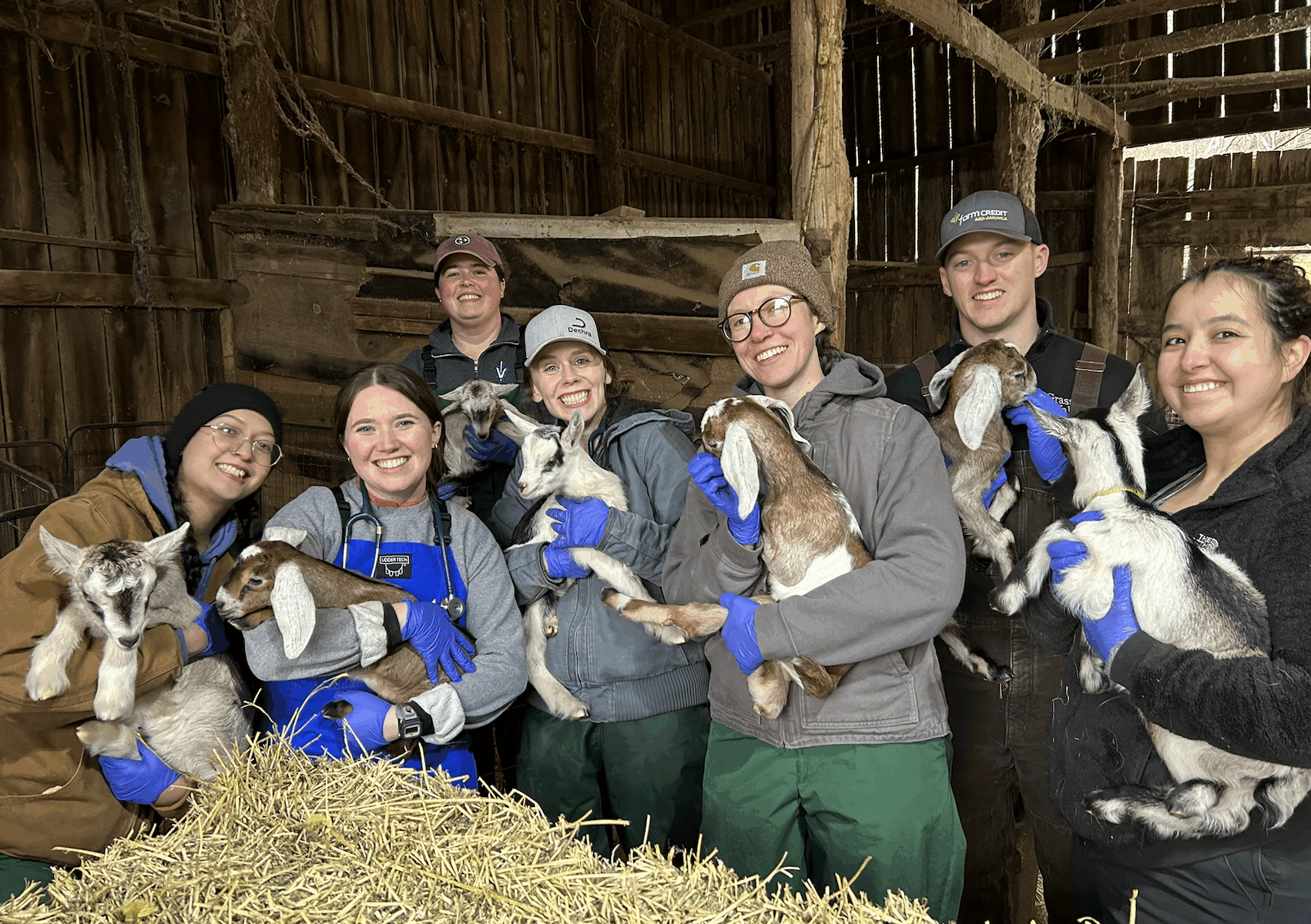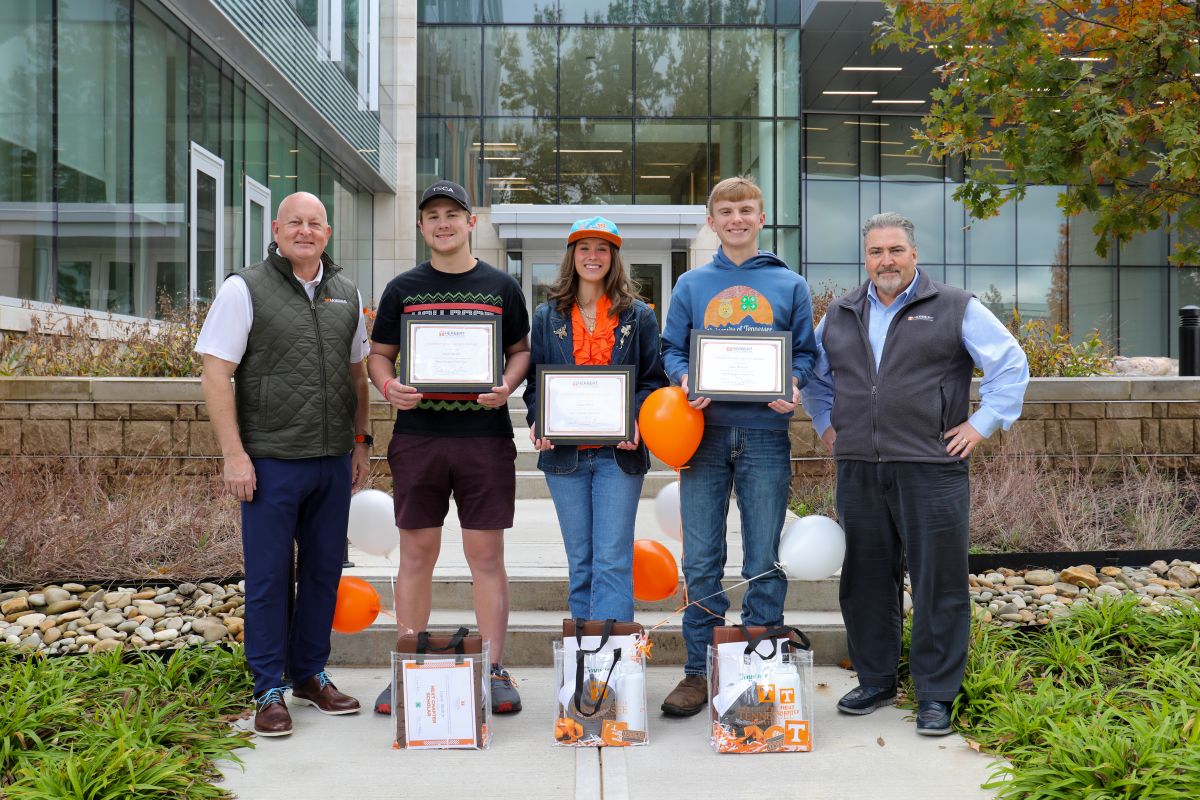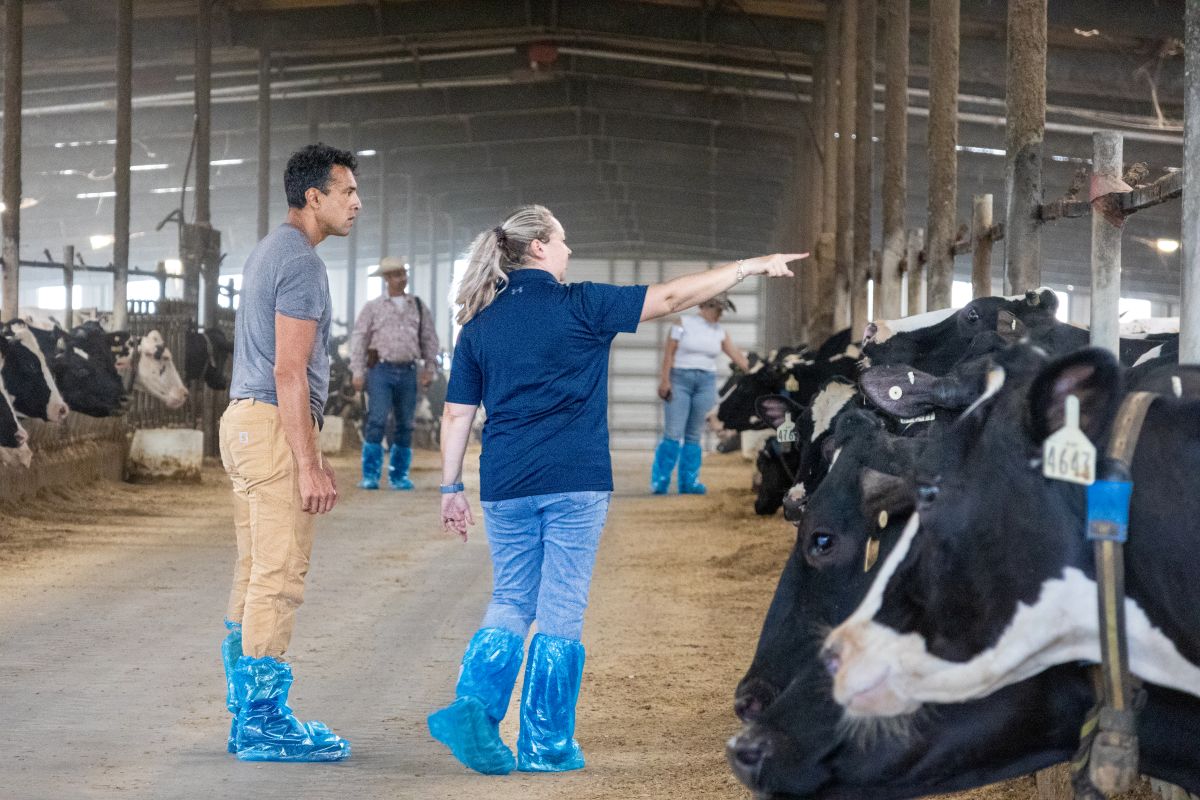Deliver high-quality, relevant learning experiences.
High-quality, relevant learning experiences are transformative and foster deeper understanding, critical thinking, and skill development. These experiences are thoughtfully designed to align with learners’ needs, interests, and real-world applications.
Highlights and Success

2026 UTIA Field Days for Farmers and Homeowners Across Tennessee
The new year brings a full slate of University of Tennessee Institute of Agriculture field days for 2026. More than twenty field days will be hosted mostly at UT AgResearch and Education Centers throughout the state, and UTIA researchers and UT Extension specialists will speak about their areas of expertise.

Bringing Veterinary Hospital Care to the Heart of East Tennessee Farms
Each week four fully equipped mobile hospitals for farm animals and horses take essential veterinary care directly to the fields and farms of East Tennessee.

Supporting Herbert Students in Their Next Chapter
Four Herbert College of Agriculture Students earned scholarships for participation in the Tennessee 4-H Next Chapter Program.

UT Extension to Lead Value-Added Dairy Experiential Learning Course in Oregon
Dairy farmers, value-added dairy producer-processors, and industry partners across southeastern states are invited to join UT Extension this spring as part of a Southeast Dairy Business Innovation Initiative experiential learning course.
2023 Key Metrics Baselines
Strategies and Actions
UTIA will expand access to online learning.
- Increase the number of online courses and credentialing as well as continuing education programs (degree seeking and non-degree seeking).
- Increase number of participants enrolled in online learning (degree seeking and non-degree seeking).
- Increasing access to online information and resources for self-guided learning.
UTIA will expand access to residential and face-to-face engagement.
- Increase in residential retention and graduation rates.
- Increase the residential students.
- Increase participation in face-to-face Extension and outreach programs.
UTIA will provide quality, relevant learning experiences.
- Increase number of and participation in experiential learning opportunities or high-impact experiences locally and globally.
- Increase number of opportunities available for stakeholders, leaders, and constituents to provide feedback on program relevancy and needs.
- Increase number of teaching and learning professional development opportunities offered for and attended by personnel.
- Increase study abroad participation.
UTIA will build connections with new audiences.
- Increase access to a broader audience with respect to demographics and workforce categories.
- Increase number of national and international participants in our programs.
- Increase partner engagement in developing new programs for an ever-changing landscape.